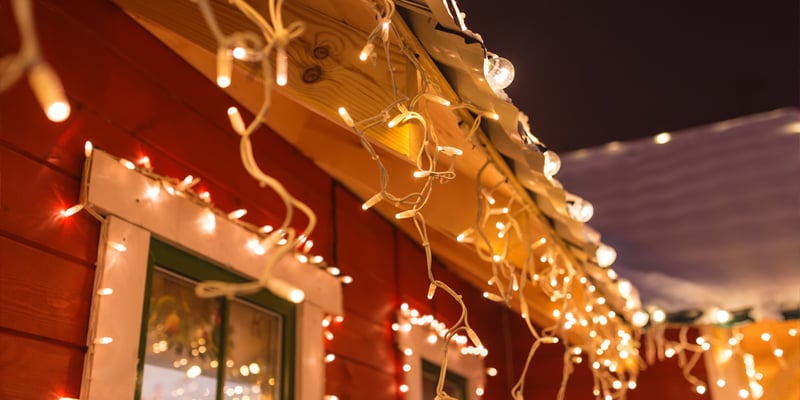
By
Rob Boyle
October 10, 2024
Updated
October 10, 2024

How do I stay safe in cold weather?
What constitutes extreme cold and its effects can vary across different areas of the world. In regions that are not used to winter weather, near freezing temperatures are considered "extreme cold."
If you are working on cold environments or participating in outdoor recreational activity during extreme cold or the winter season, it's important to take caution and prepare for the change in temperature.
What should I wear in cold weather?
 What you wear is extremely important in preventing cold stress to your body. The type of fabric worn also makes a difference.
What you wear is extremely important in preventing cold stress to your body. The type of fabric worn also makes a difference.
Cotton loses its insulation value when it becomes wet. Wool, silk, and most synthetics retain their insulation even when wet.
The following are dress recommendations for working in cold environments:
- Wear at least three layers of loose-fitting clothing. Wear a tightly woven, preferably wind-resistant coat or jacket with inner layers of light, warm clothing. Layering provides better insulation. Do not wear tight-fitting clothing.
- Wear a hat or hood to help keep your entire body warmer. Hats reduce the amount of body heat that escapes from your head. Adding a warm scarf will keep your neck and chest warm.
- Use insulated gloves or mittens to protect your hands (water resistant if necessary).
- Wear insulated and waterproof boots (or other footwear).
Avoid damaging your muscles
Work slowly when doing outside work or chores. Pulled muscles are more likely to occur in cold weather because your muscles tighten up and contract in the cold.
Before starting work, do a five minute warm up with a few light stretches. Do not stretch a cold muscle without first warming up.
A warmed muscle contracts more forcefully and relaxes more quickly. Therefore, both speed and strength should be enhanced, and the likelihood of muscles being forcefully overstretched and causing injury is reduced.
Drink plenty of water
Don't be fooled. You can become dehydrated in cold weather if you don't replace fluids. Dehydration reduces blood flow to the skin, which can lead to cold injuries.
Watch your footing
Serious injuries can result from trip and fall accidents. Watch for areas that may become slick when wet. Watch for ice patches on the ground, and pay special attention when getting on and off equipment.
Walking on ice can be dangerous. Many cold weather injuries result from falls on ice-covered sidewalks, steps, and driveways. If possible, sprinkle sand or cat litter on icy patches.
Do not put your hands in your pockets as it will not allow to catch your balance if you slip or trip while walking.
Use the buddy system
Make sure to use the buddy system when working in cold weather so you can both identify signs of potential cold illness.
Cold weather effects include a change in behaviour patterns, a change in skin or lip colour (blue, purple, or gray), or physical shaking. When these symptoms are present, affected people should be taken indoors as soon as possible.
Bring necessary items
If you are working or doing chores outside, bring a first aid kit with any necessary tools in case of an emergency. Carry a cell phone with you.
What are some safety tips during the winter holiday season?
The holiday season is always a special time of year when families gather, parties are scheduled, and travel activity spikes. However, it is also a time when busy people can become careless or vulnerable to theft and other holiday crimes and accidents.
We can never be too careful, prepared, or aware. By taking some basic precautions, you can ensure your whole family remains safe and injury-free throughout the winter season.
How can I protect my home from holiday lights related accidents?
- Choose the right light for the job. Light strings and other decorations are labeled for indoor or outdoor use.
- Check the light strings and extension cords you use, discard any that are frayed or have exposed wires, loose connections, or broken light sockets.
- Avoid plugging too many lights and decorations into an outlet. Overloaded circuits can overheat and start a fire.
- Turn off all holiday lights and decorations before you go to bed or leave your home. Use a timer at the outlet if you are gone for extended periods of time.
- Choose tinsel, artificial icicles, and other trimmings made of plastic or non-leaded metals.

Using batteries in holiday gifts and decorations
Many batteries are small enough to be swallowed by children. This can cause serious internal injuries and even death. Batteries can also overheat, burst, or leak if they are not properly installed, used, stored, or discarded.
- Make sure that batteries in household items stay securely in the products.
- Store batteries out of children's reach and sight.
- Do not store batteries where they can touch metals, like coins.
- Remove batteries from items that will not be used for an extended period of time, such as seasonal decorations.
- Never toss batteries into a fire. They might burst or explode.
Prepare yourself for holiday parties
If you're hosting a party, have non-alcoholic beverages available for party guests. Find alternative transportation for intoxicated guests like arranging for an official designated driver or using a ride-sharing service. If you're attending a party, be sure to eat something before consuming alcoholic beverages. Remember only time will eliminate alcohol from your body. Never drink and drive.
